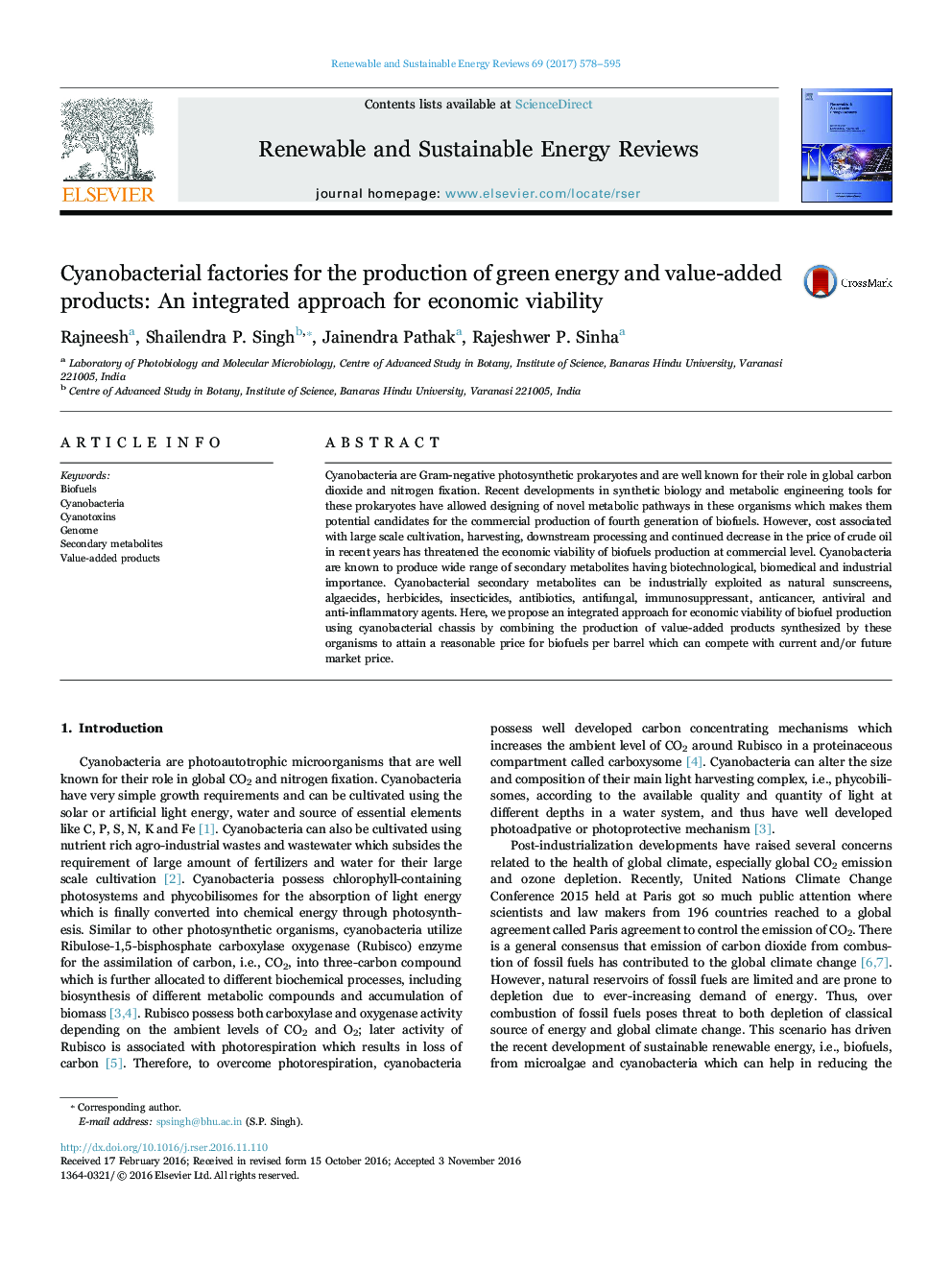| Article ID | Journal | Published Year | Pages | File Type |
|---|---|---|---|---|
| 5483356 | Renewable and Sustainable Energy Reviews | 2017 | 18 Pages |
Abstract
Cyanobacteria are Gram-negative photosynthetic prokaryotes and are well known for their role in global carbon dioxide and nitrogen fixation. Recent developments in synthetic biology and metabolic engineering tools for these prokaryotes have allowed designing of novel metabolic pathways in these organisms which makes them potential candidates for the commercial production of fourth generation of biofuels. However, cost associated with large scale cultivation, harvesting, downstream processing and continued decrease in the price of crude oil in recent years has threatened the economic viability of biofuels production at commercial level. Cyanobacteria are known to produce wide range of secondary metabolites having biotechnological, biomedical and industrial importance. Cyanobacterial secondary metabolites can be industrially exploited as natural sunscreens, algaecides, herbicides, insecticides, antibiotics, antifungal, immunosuppressant, anticancer, antiviral and anti-inflammatory agents. Here, we propose an integrated approach for economic viability of biofuel production using cyanobacterial chassis by combining the production of value-added products synthesized by these organisms to attain a reasonable price for biofuels per barrel which can compete with current and/or future market price.
Related Topics
Physical Sciences and Engineering
Energy
Renewable Energy, Sustainability and the Environment
Authors
Rajneesh Rajneesh, Shailendra P. Singh, Jainendra Pathak, Rajeshwer P. Sinha,
